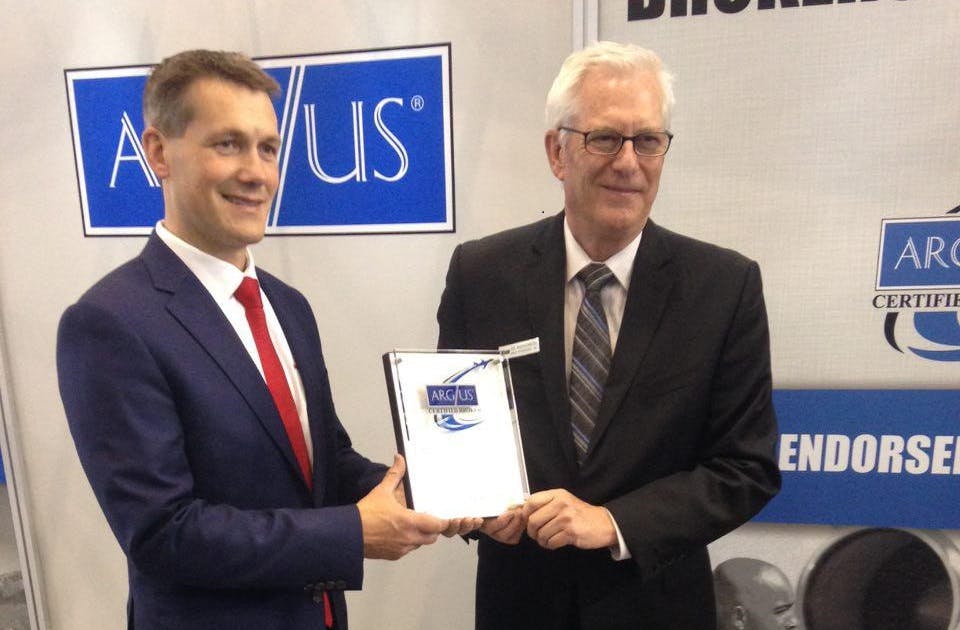5 questions to ask your charter broker
With the on-demand private jet charter market in Europe made up of thousands of aircraft, operated by hundreds of different operators, it’s no surprise that most flights are arranged via a charter broker.

The role of the broker is to help the client filter and find the best aircraft for your flight, from what can feel like an overwhelming choice of options. That’s a position of great trust and responsibility – one that we take very seriously here at PrivateFly.
Whether you choose us to help arrange your flight (and we hope you do) or someone else, here are some of the questions you might want to ask before you choose a private jet charter broker.
If we can answer any further questions, don’t hesitate to ask us directly. You can contact us 24/7 on +44 (0)20 7100 6960.
1. What industry accreditations & partnerships do you have?
Charter brokers aren’t (yet) regulated in the same way as operators or manufacturers of aircraft. But most reputable companies will sign up for voluntary accreditation programs such as Argus Certified Broker or Wyvern Broker.
These audit schemes assess a broker’s business, looking at workplace culture, operational processes, and financial stability – only awarding a certificate to those who meet their designated high standards. PrivateFly is certified by both Argus and Wyvern.

A good broker should also be a member of industry organisations, such as EBAA, NBAA, and ACA. Active participation in industry groups, events and debates is a marker of a company with a focus on best practice, and one that looks to raise standards. At PrivateFly we immerse ourselves in business aviation and our industry bodies. Our CEO Adam Twidell co-chairs the EBAA Broker sub-committee, and was for many years a Council member of ACA.
A company’s trade partnerships can also be a good indicator of their service standards, as major organisations go through a stringent audit process before working with any private jet company. At PrivateFly we’re a preferred supplier to Virtuoso, the world’s largest travel agency network, in addition to many other corporations and groups.
2. How long have you been in business?
It’s no guarantee – and there are exceptions – but choosing a charter broker with a successful business track record is an indicator of their quality. While digital transformation in our industry has brought many advantages, it’s also made it easier for some less-reputable charter brokers to start an online business, misrepresenting themselves and what they offer.

Having an impressive website is not a bad thing at all – and technology can add efficiency, cut costs and improve communication. But do your research and make sure the company behind the website has knowledgeable staff, is financially stable, and has been operating commercially for a sustained period of time – indicating that their business model is working, and customers are coming back.
PrivateFly has been around for 12 years now, and in 2018 we became part of Directional Aviation, a long-established group of business aviation providers that also includes Flexjet and Sentient Jet.
3. Can I read reviews from your existing customers?
In any industry, genuine client reviews are a powerful indicator of a company’s service and quality. And private jet charter is no different.
Ideally look for reviews that are checked and verified by an independent, third party review program, rather than ones that are just published on the company’s own website. A larger number of reviews will also help you to get a fuller sense of a company’s service levels.
At PrivateFly we collect reviews via Trustpilot. With over 850 reviews, you can get a clear view of how our real-life customers feel by reading their comments. And we’re proud to hold an average Trustscore of 4.9 out of 5.

4. How do I know my aircraft is safe?
A reputable charter broker will have a rigorous process of evaluation for the aircraft operators they work with, and a clear safety policy in place – and now this should include their approach to COVID-19 mitigation.
As an absolute minimum, your broker should work only with operators with a current AOC (Air Operator Certificate), which means they are approved by the relevant national aviation authority to perform commercial operations. In addition, if they are operating in the US make sure your broker only works with Part 135 certified aircraft operators. This means they are licensed by the FAA to carry passengers for commercial private charter and are governed by stricter safety standards than other types of non-commercial private flight.

However above and beyond this, a well-established charter broker should have their own safety policy with a rigorous screening and due diligence process for their operator supply chain. This means they choose not to use certain operators for their clients’ flights, even if they are certified. This could be for service level or safety reasons. A good charter broker should be able to explain their safety policy to you.
At PrivateFly, our commitment to safety has always been paramount and we work only with aircraft operators and aircraft which meet our high standards of safety and service – now including an assessment of their COVID-19 protocols (See our COVID-Safe Charter). As part of Directional Aviation, we benefit from our parent group’s industry-leading safety culture, and focus on continuous assessment and improvement of our already-high safety standards, which are set by Group Safety Officer for Europe, Garreth Horrocks.
5. What does the price include?
When a charter broker gives you a quote – or hopefully a choice of quotes – for your flight, make sure this is a final price, including all fees, taxes, and catering costs. Unfortunately some less-reputable charter brokers may quote an initial price to win your business, then spring a nasty surprise later down the line.
(The only exception to this would be de-icing costs, which as an industry standard are charged after the flight – as it’s impossible to predict the cost of this beforehand. That said, a reputable broker should always alert you to the possibility of de-icing charges when you are flying in cold weather, prior to your flight, and discuss ways to mitigate this cost if at all possible. Read more on de-icing charges.)
At PrivateFly we’re transparent and open about how we operate, and our quotes are always comprehensive from the start. We believe in creating a relationship of trust between broker and client, and one that leads to an ongoing relationship – which is why so many of our clients return to us, and recommend us to others.
Have any additional questions for us? Our expert Flight Team are available 24/7 for more information, advice or a quote. Contact us or call +44 (0)20 7100 6960.
Related content

New health & safety measures for private jet travel



